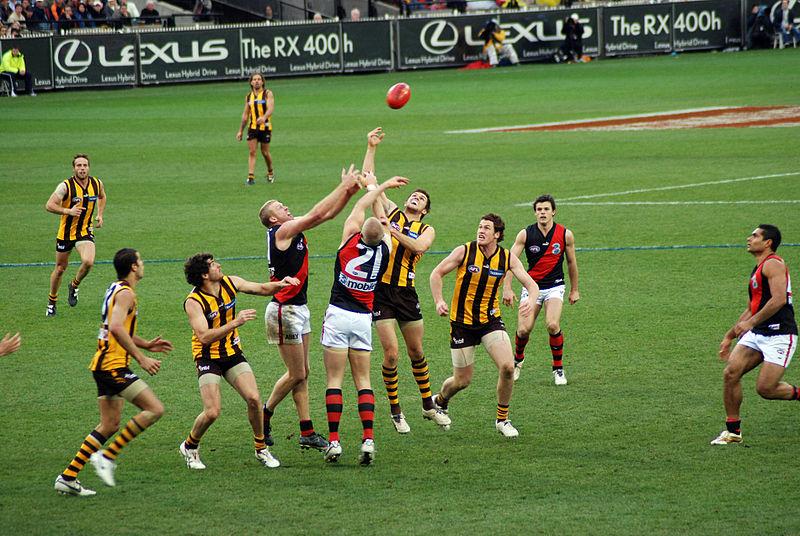Australia moves to rein in pervasive gambling messages in sports
Sports in Australia, like rugby, have become frequent places for gambling companies to advertise and promote their products. (Photo by Tom Reynolds via Wikimedia Commons.)
Tune into virtually any major sport in Australia, from rugby to cricket to tennis, and you’re likely to be bombarded by commercials touting the latest odds on the game.
Legal sports gambling is a multi-billion-dollar industry in Australia, where betting websites sponsor major teams and buy up stadium naming rights.
Imagine a “Bet365″ logo plastered across the back of a Los Angeles Laker’s uniform instead of the player’s name or a “Centrebet” logo occupying center-ice at a Boston Bruin’s game. Even play-by-play commentators at tennis matches talk about winning bets rather than sets.
There’s been a 50 percent rise in spending on gambling advertising this year alone, according to one survey. And now bookies are joining sports commentary teams. Prime Minister Julia Gillard says the industry has finally crossed a line.
“The thing that’s really been frustrating me, and I think worrying families,” Gillard said, “has been the constant reference to live odds. It’s been the integration of gambling representatives into what appears to be the broadcast, the commentary, the round, the ground, the round (of) play.”
Communications Minister Stephen Conroy, the man who oversees broadcast regulations, was more succinct.
“Australians are sick of having gambling, and live odds in particular, rammed down their throat,” he said.
Broadcasters and the government are facing a public backlash against the growing saturation of gambling messages in what’s viewed by many as a family activity.
“What we’re concerned about is not whether or not these are deliberately targeting children, but whether or not children are exposed to the advertising,” said Samantha Thomas, who researches the health and social impacts of gambling at the University of Wollongong. “We have children — sometimes 10 to 13 percent of a sporting match audience — being exposed to a very, very adult message and a very adult product.”
So the prime minister gave broadcasters an ultimatum — fix this or we’ll fix it for you.
Within hours the broadcast industry released a new voluntary code of conduct (which they describe as unprecedented). Gone will be the constant references to live odds; so too those bookies taking part in play-by-play commentary. But generic gambling commercials will still be allowed during scheduled breaks, like half-time.
That’s prompted some critics, like Andrew Wilkie, a parliamentarian who’s long argued for restrictions on gambling, to say the voluntary code doesn’t go far enough.
“It’s only a tiny step,” Wilkie said. “It doesn’t deal with the key issue — that we’re allowing the promotion and advertising of gambling during the day when children are watching TV.”
A parliamentary committee and at least two states are now looking at ways to get rid of those omnipresent logos on uniforms and stadiums, something the new broadcast guidelines don’t cover. The sports teams have been largely quiet about it, in light of the public backlash over the saturation of gambling messages in sports.
Sports betting still accounts for just a small fraction of the money that Australians spend on gambling, coming in well behind slot machines and horse racing. But the big international online gambling companies say they’ve got their eye on Australia for a major expansion in the coming years, with the rollout of new smartphone apps for sports gambling.
